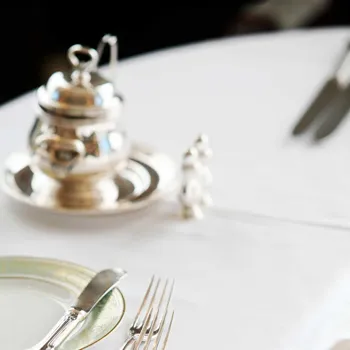Unlock the world with cultural etiquette! Learn essential tips for respectful travel. Dive in to avoid 'oops' moments abroad!
Namaste, globe-trotters! Planning a trip abroad? Exciting times ahead! But before
you pack your bags and charge your cameras, let's talk about something super important: cultural etiquette.
You see, what's perfectly acceptable in your corner of the world might raise eyebrows or even cause offense elsewhere. To ensure your trip is filled with smiles and positive experiences, and to avoid any unintentional 'oops' moments, here are 10 simple tips to keep in mind.
After all, we all want to be respectful and responsible travelers, right? So, ditch the cringe-worthy tourist stereotypes and become a cultural ambassador instead! Let’s dive in and learn how to navigate different customs with grace and understanding.
Remember, a little preparation goes a long way in making your travel experience memorable and positive for everyone involved. It's not just about seeing the sights; it's about connecting with the people and respecting their way of life. That’s the real magic of travel!
Different cultures have unique greetings; adapt to show respect
First things first: greetings! In many cultures, a simple handshake or a wave just won't cut it. In Japan, for example, bowing is the standard greeting, and the depth of your bow reflects your respect for the person you're greeting.
In some parts of India, the traditional "Namaste" gesture, with palms pressed together, is the preferred way to say hello. Similarly, cheek-kissing is totally normal in some European countries, but it might be considered too intimate in others.
Do your research beforehand to understand the appropriate greeting in the place you're visiting. Also, pay attention to non-verbal cues. Body language speaks volumes!
Avoid excessive eye contact if you are speaking to elders if you visit China or many Asian countries as it can be considered impolite.
Next up
Dining do's and don'ts. Table manners vary wildly across the globe. Slurping your noodles might be considered rude in some Western countries but signifies enjoyment in Japan and some parts of Asia.

Using chopsticks correctly is crucial in many Asian countries – never stick them upright in your rice bowl, as that resembles a funeral ritual. Also, remember that some cultures find it impolite to start eating before the host does. Offering food to others at the table is a common practice.
For example, in many parts of India, it is considered polite to offer food to your guests before serving yourself. Similarly, accepting food with your right hand is important in some cultures, while the left hand is considered unclean.
Dress codes matter; respect local customs and occasions
Now, let's talk about dress codes. What you wear can send a powerful message. In many religious sites, dressing modestly is a must – think covered shoulders and knees. When visiting temples in Southeast Asia, leave your shoes at the entrance.
In some conservative cultures, revealing clothing can be seen as disrespectful. So, pack accordingly and be mindful of local customs. In more formal settings, like business meetings, opt for professional attire. It shows respect for the occasion and the people you're interacting with.
Remember, it’s always better to err on the side of caution and dress more conservatively than you normally would.
Cultural nuances in gift-giving include types of gifts and colors to avoid
Gift-giving is another area where cultural nuances come into play. In some cultures, gifts are expected when you're invited to someone's home. However, the type of gift, and even the way you present it, can be significant. In China, avoid giving clocks as gifts, as they symbolize bad luck.
The gift of food is usually welcome. It is better to find out what is preferred and not preferred before you present gift to someone. Wrapping the gift in specific colors is also something to keep in mind. Colors sometimes represent religious events of mourning and should be avoided when gifting.
Respect personal space and cultural differences
Let’s discuss about personal space. This varies across cultures. In some places, people stand very close while talking, while in others, they maintain a greater distance. Be aware of these differences and adjust your own behavior accordingly.
Avoid invading someone's personal space, as it can make them feel uncomfortable. Observe how locals interact and try to mirror their behavior. Also, keep in mind that public displays of affection may not be acceptable in all cultures.
It's always best to be respectful of the local norms and customs.
Travel with open mind, learn from others, embrace differences
Finally, remember that a smile and a genuine attempt to understand go a long way. Even if you make a mistake, a sincere apology and a willingness to learn will be appreciated. Don’t be afraid to ask questions and show your curiosity.
Most people are happy to share their culture with respectful visitors. Travel is all about broadening your horizons and learning from others. So, embrace the differences, be open-minded, and enjoy the adventure! Wishing you a safe and enriching journey!
Remember: The world is a book, and those who do not travel read only a page. Make sure your travel is respectful and insightful, adding valuable chapters to your book of life. Happy travels!
AI Generated Content. Glance/InMobi shall have no liability for the content












